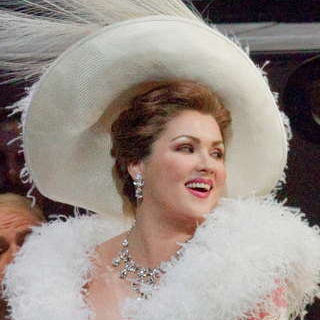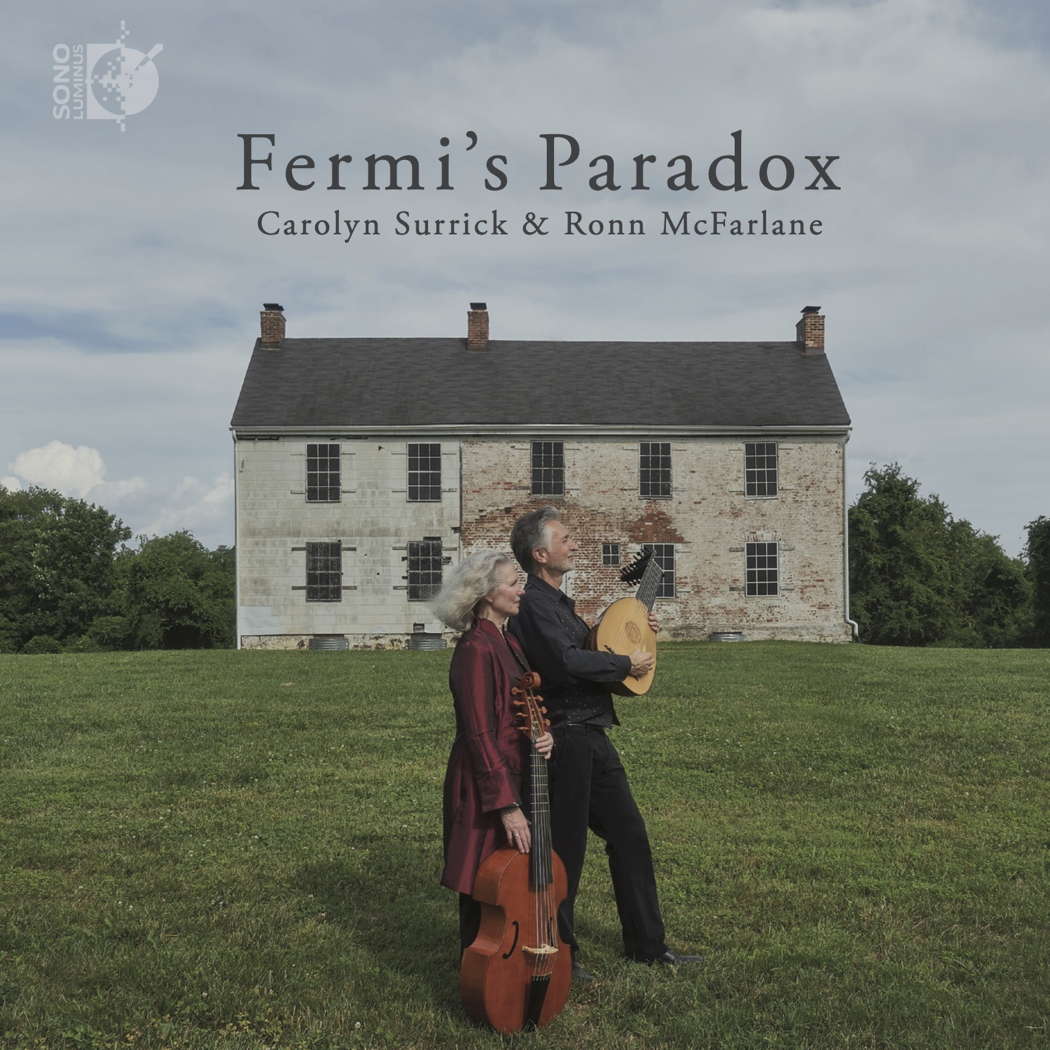 SPONSORED: Vocal Glory - Massenet's Manon in HD from New York Metropolitan Opera, enjoyed by Maria Nockin.
SPONSORED: Vocal Glory - Massenet's Manon in HD from New York Metropolitan Opera, enjoyed by Maria Nockin.
All sponsored features >>
Fermi's Paradox
Sono Luminus releases a new recording by Carolyn Surrick and Ronn McFarlane
Sono Luminus announces Fermi's Paradox, a new album from viola da gambist Carolyn Surrick and lutenist Ronn McFarlane, with guest percussionist Jackie Moran, to be released worldwide on 20 November 2020. Fermi's Paradox is Surrick and McFarlane's first album together and was created and recorded during the COVID-19 pandemic, when both performers' usually busy concert schedules were cancelled. Surrick is well-known for her fifteen recordings with the group she founded in 1998, Ensemble Galilei. McFarlane, nominated for a Grammy in 2009, is the founder of Ayreheart and a founding member of the Baltimore Consort.

Fermi's Paradox
Carolyn Surrick and Ronn McFarlane were getting ready for an April concert together when the pandemic hit. Neighbors separated by only about twenty miles, their weekend rehearsals continued even after it was clear that the concert would not be happening. Late in March, Surrick proposed the idea of making a recording. She writes in the liner notes for this album, 'We didn't have much shared repertoire, at least that hadn't already been recorded by the Baltimore Consort, Ensemble Galilei, Ayreheart, or Trio Galilei. That meant a huge investment of time and energy ... But days passed and the reality of the pandemic settled in. Nothing else was going to be happening this spring. No concerts. No tours. Cancellation after cancellation, with no end in sight ... We added rehearsals. Wrote harmony parts. Wrote new music. Arranged our favorite tunes for lute and viola da gamba. Set to work every day, practicing, dreaming, thinking, and planning.'
The album includes recordings of new music for lute and viola da gamba by Surrick (The Last Day, 2020) and McFarlane (Fermi's Paradox, 2018; Daniel's Chaconne, 2013; and Trinity Grove, 2019), as well as McFarlane's arrangement of Blackwater Side and John Dowland's only piece for two instruments, Adew for Master Oliver Cromwell. Little Martha, originally recorded by the Allman Brothers, made its way onto the album, as did The Rose of Raby by Dave Shepherd.
The program grew organically, with one tune leading to the next. A thoughtful, wide-ranging, and deeply felt album took shape. Surrick writes, 'John Barleycorn fit perfectly with She Moved Through the Fair, an Irish tune I had never heard. It was a new song to be sung by my instrument. We both love Turlough O'Carolan and neither of us had ever recorded Planxty O'Rourke, Second Air with its mysterious blend of Irish and Italian sensibilities (tunefulness and raw emotion) so that made the short list ... If there's Dowland, then there must be Marin Marais, one of the greatest composers for the viol who ever lived. If the gamba is going to sing a traditional Irish tune, why not a recitative and aria by Telemann? If she's going to sing something by Telemann, why not an Ave Maria, written by Gounod and based on thematic material belonging to Bach?'
McFarlane's Daniel's Chaconne and Trinity Grove are both tributes to friends. Surrick's The Last Day reflects the weight of deep loss. Fermi's Paradox is named after Italian-American physicist Enrico Fermi, who pointed out that the probability of alien life is high, yet we have no proof of their existence.
Surrick draws a comparison between Fermi's Paradox and this time of isolation, writing, 'As concert after concert is cancelled, as rehearsals become unnecessary, as the future of live music performance remains uncertain, we have to wonder, ‘Is there anyone out there?' Without a reason to play, without audiences, without other musicians, why should we practice? The answer has to be: we play because we can. We make music because the world needs music, our hearts need music. This is what we do in the face of isolation and despair. We are not alone.'
Posted 9 October 2020 by Christina Jensen





